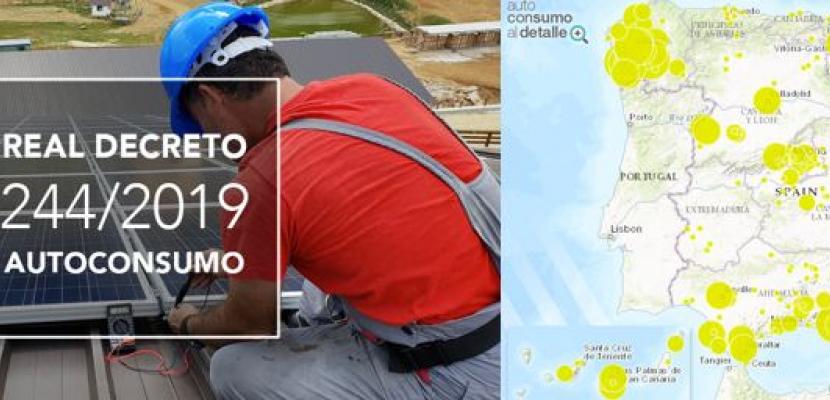Image

Regulatory changes for the promotion of collective self-consumption in Spain
Published on 11 August 2021

Spain
This is the good practice's implementation level. It can be national, regional or local.
About this good practice
On 5 April 2019, the Spanish government approved RD-244/2019 establishing the conditions for photovoltaic self-consumption, which completed the regulatory framework of RD-15/2018 that eliminated the well-known sun tax in Spain. RD-244/2019 regulates the administrative, technical and economic conditions of RD-15/2018 on urgent measures for the energy transition and the protection of citizens who had made an investment in photovoltaic self-consumption.
The most important changes established in the new regulation are:
• Simplified administrative and technical procedures, especially for small installations (> 100kW)
• Energy produced by self-consumption without taxes
• Right to collective self-consumption, defining the concept of nearby installation
• Power for self-consumption without limits with respect to the contracted power
• Right to rent roofs and / or covers so that third parties can produce electricity
• Definition of the allowed schemes and the location of the measuring equipment
• Establish the types of self-consumption modalities (with and without surpluses (with and without compensation *))
• Definition of compensation systems for surpluses
• Regulation of the operation of the self-consumption register.
On the other hand, on 3 November 2020, RD-960/2020 was published, which regulates the economic regime for renewable energies for electrical production facilities based on the long-term recognition of a price for energy. Auction mechanism.
The most important changes established in the new regulation are:
• Simplified administrative and technical procedures, especially for small installations (> 100kW)
• Energy produced by self-consumption without taxes
• Right to collective self-consumption, defining the concept of nearby installation
• Power for self-consumption without limits with respect to the contracted power
• Right to rent roofs and / or covers so that third parties can produce electricity
• Definition of the allowed schemes and the location of the measuring equipment
• Establish the types of self-consumption modalities (with and without surpluses (with and without compensation *))
• Definition of compensation systems for surpluses
• Regulation of the operation of the self-consumption register.
On the other hand, on 3 November 2020, RD-960/2020 was published, which regulates the economic regime for renewable energies for electrical production facilities based on the long-term recognition of a price for energy. Auction mechanism.
Resources needed
As this good practice is related to legislative changes, no financial resources were used.
Evidence of success
Increase in the installed capacity of solar self-consumption:
- Spain: 2018: 236 MW; 2019: 459 MW
- Andalusia: 2018: 8 MW; 2019: 32 MW
- Spain: 2018: 236 MW; 2019: 459 MW
- Andalusia: 2018: 8 MW; 2019: 32 MW
Potential for learning or transfer
All this regulatory development facilitates the path of Renewable Energy Communities (REC) whose main objective is that various consumers in the same community (neighbours, a neighbourhood, an industrial estate, etc.) can collectively benefit from the same generation facilities located in its area, maximising the use of generation capacity and, therefore, of the investment to be made.
Taking into account that the European Commission is focused on the definition and promotion of these RECs, this good practice is replicable to any region interested in the promotion of photovoltaic self-consumption or any other renewable energy.
Taking into account that the European Commission is focused on the definition and promotion of these RECs, this good practice is replicable to any region interested in the promotion of photovoltaic self-consumption or any other renewable energy.
Further information
Website
Good practice owner
You can contact the good practice owner below for more detailed information.
Organisation
Ministry for the Ecological Transition and the Demographic Challenge (MITECO)

Spain
Comunidad de Madrid
Contact
Project Manager